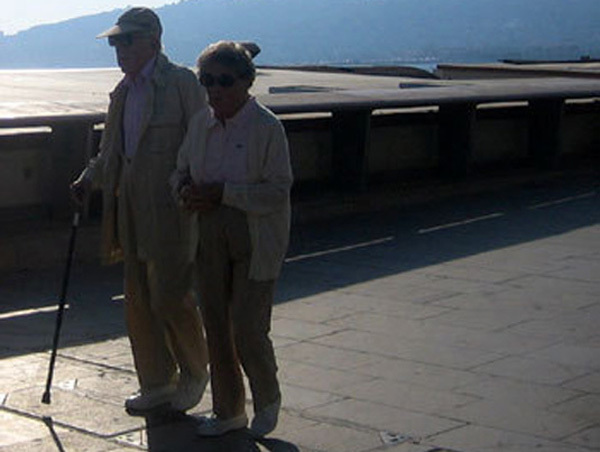With 5 tips divided into practical papers and illustrated through inspirational symbolic projects, the guide provides step-by-step support for leaders of future projects, whether they start or not.
Involving people with Alzheimer’s disease
Andy Hyde, founder of Go Upstream, has developed a project to make transportation more inclusive in order to improve mobility for people with dementia. It bears witness to the content and richness of the discussion workshops with patients and transport agents who made it possible to participate in the construction of the project.
– Take advantage of the main player’s experience
Palais de Tokyo has developed comprehensive tours and art therapy workshops dedicated to patients and their families in partnership with France Alzheimer. The association’s experience made it possible to take a step forward in the legitimacy and ability of the cultural institution to welcome people with Alzheimer’s disease.
Obtaining financial support or expertise
The founder of Maison des Sages looks back at the genesis of the project and the difficulty of finding the support needed to make it a reality. The house opened in October 2019, and is now benefiting from many supports thanks to social protection groups, private partnerships, and corporate and private sponsorships.
Know how to communicate appropriately
Experience comments on Levallois Sports Club offering comprehensive table tennis lessons. Thanks to a well-thought-out communication plan and extensive media coverage, the project has benefited more than 50 patients and increased the club’s visibility.
Project evaluation to measure its effectiveness
The Italian association Alzheimer Bari wanted to change the size and make the “Spesa Più” supermarket network comprehensive. In light of the success of the “pilot” site, the model was evaluated, adapted, and distributed to all thirteen stores in the network.
The draft of this guide was born during the first regional meeting of the Alzheimer’s Group in Nice in September 2019 which prompted group members to make several observations:
1 – The number of comprehensive initiatives for patients and their caregivers has increased in France,
2. It is often worn either by people who personally suffer from Alzheimer’s disease or who are in contact with sick patients, or because of the illness of one of their parents,
3 – It relates most of the time to the public sector, charitable societies, or charities, and rarely to the “commercial” sector.
4. There is a lack of practical tools to help those involved in daily life, who are not specialized in Alzheimer’s disease or disability, to “engage” in a simple way with this societal issue and contribute to its achievement. Reply ,
5. Building an inclusive society is one of the conditions for facing the challenge of cognitive aging. This project will inevitably be long-term, but it will only succeed if all of the daily actors participate in it.
The group relied on a working group made up of institutional players and project leaders led by the Médéric Alzheimer Foundation. Not all project leaders testify in social medicine or healthcare, which is what makes their certification so strong.
« We all have a role to play in improving the daily lives of people with Alzheimer’s disease. Our goal is to tell professionals who do not come from health or social medicine that they can contribute to this social cause, and above all that they are legitimate to do so. “Segolene Charney, Project Manager who coordinated the production of the guide, concludes.
*Launched by the Médéric Alzheimer Foundation in 2019 and brought together by Agirc-Arrco, the Association of Provinces of France and France Alzheimer, Mutualité Française, SFGG and UNAF.

“Subtly charming problem solver. Extreme tv enthusiast. Web scholar. Evil beer expert. Music nerd. Food junkie.”


